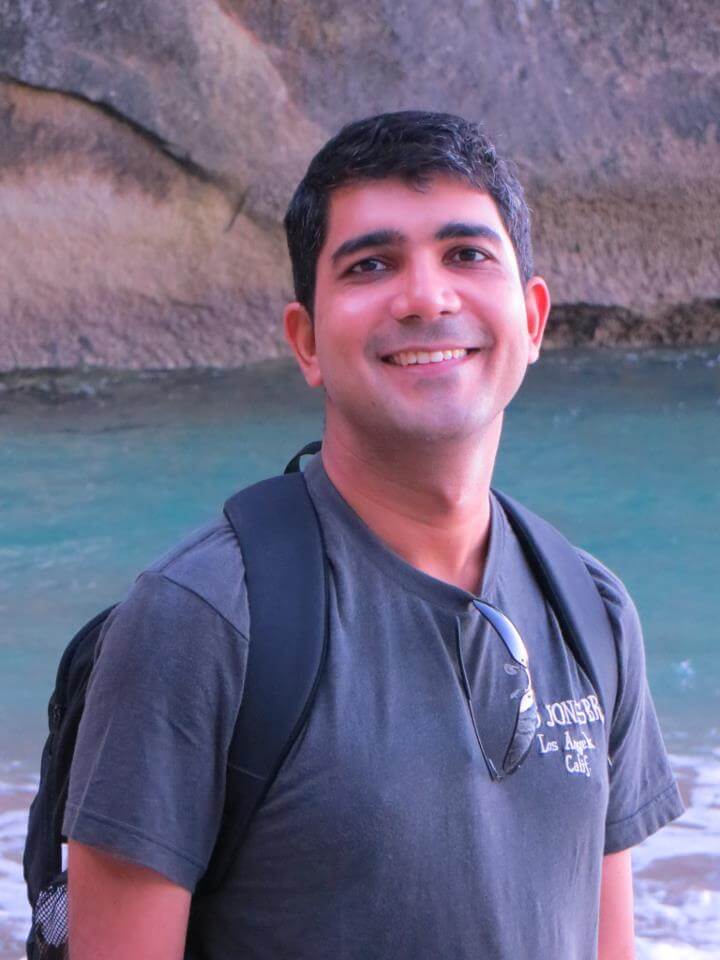About
About this blog

The short version
This blog takes a deeper look at some key topics that significantly affect our personal lives and provides a structured approach to assess them. This is important because a lot of these topics (eg. designing home interiors, buying home appliances, selecting your child’s school) revolve around events/decisions that are relatively infrequent or even one-time activities, but something we all eventually face and are often underprepared for. The blog helps you to methodically approach these topics and arrive at a decision that is optimally suited to your unique needs and preferences.
The long version
While all of us have very different and unique lives, there are some common topics/events that all of us face at some point of time or the other; the timing may vary, but we all eventually face them. It could be buying a house, designing your home interiors, selecting home appliances, taking a vacation, selecting your child’s school, etc. As a lot of these are infrequent or even one-time activities, we have little experience in it and we often find ourselves lost on how to go about it. Nevertheless, they are critical decisions that significantly affect you and your family’s everyday life in very subtle ways; so it’s important you do a good job of it.
This blog delves into some of these topics and provides a methodical and structured approach to handle them – in terms of planning, assessing your needs, identifying key factors that matter and evaluating options by weighing pros and cons, before proceeding to make a decision. And as you go through the process, more often than not, you would filter down from the plethora of choices down to just 2 or 3 that are very close.
I call this the optimal zone – a set of options that are unique to each person based on their needs and preferences.
And frankly, at this point it doesn’t really matter which one you choose as you can’t go too wrong with any of them. Technologies, approaches, brands and models will come and go, but if you know how to assess things, you have little to worry about. This becomes particularly useful in today’s “world of plenty” where we have umpteen choices for anything and everything and we are constantly bombarded with ads, reviews, top-10 lists and what-not, often leaving us thoroughly confused with their inconsistent messages.
This blog is not about product reviews or top-10 lists. Rather, it’s about helping you do your homework. It’s about enabling you with the knowledge to assess a topic and arrive at a decision that is optimally suited to your unique needs and preferences.
It’s never about what’s the “best” out there, it’s about what’s best for you.
About me

Hi, I am Pradip and currently live in Bangalore.
I am fascinated by chaos and complexity and enjoy the process of finding the “method behind the madness”, getting into details and figuring out the “why” behind it. Sometimes when I’m buried deep in some analysis, there are moments when I catch a glimpse of the sheer genius that goes behind creating some of the simplest of things; it just makes my day.
An electrical engineer by education, I initially worked in tech, helping companies get swift and efficient. 8 years later I went back to academics, completed my MBA from ISB Hyderabad and joined the pharma sector. I spent the next 8 years optimising operations in drug development before deciding to experiment with the angel investing space. I now help companies structure and optimise their operations.
I have been a cycling enthusiast since childhood and now enjoy going for long 100km rides with my cycling group. I find it quite therapeutic; it gets me physically revved up and mentally relaxed. Hailing from Bengal, I love music and live theatre – there’s something about live performances that videos can never match. I am a foodie at heart and enjoy experimenting with different cuisines and occasionally try my hand at cooking when we have friends over.
Why did I start this blog?
The benefits of planning, particularly in your personal life, are immense. And the best part is you don’t need to perfect it – even a small amount of planning can go a long way in improving your daily life. Apart from the obvious benefits of optimally utilising on time, money and energy, there are a lot of intangible benefits – you are a lot less hassled, have more time on your hands and can focus on things that really matter. Sometimes there are unexpected benefits of new possibilities opening up simply by virtue of being well-planned. While I am quite organised and detail-oriented by nature, it was my professional life that really bolstered it further.
Over the years I have noticed that while people are predominantly well-planned at work, a surprisingly large number of them are anything but organised in their personal lives. This blog is my attempt to address this by sharing my learnings and experiences. I am convinced that once my readers experience the benefits of making optimal decisions in their personal lives, they won’t look back and planning will become second nature to them.
Why am I slow at publishing posts?
While the internet is a great source of knowledge and a popular means of research for almost anything, it’s not as satisfying as some traditional approaches to research. I believe that there is a certain charm in speaking to experts, visiting factories and interacting with professionals from the industry.
And with the amount of junk floating around on the internet, it can sometimes be quite tedious to wade through all the trash before you find information that’s authentic, accurate and reliable. To me, the internet serves as a good starting point.
I sometimes get excited reading a research paper about some technology, material or product (whatever bit of it I understand that is 😊), but it’s only when I speak to industry experts, that I learn about practical challenges that forces the industry to implement it sub-optimally or skip it all together – be it issues relating to manufacturing, people habits or even the weather. Similarly, there are several little things I learn when visiting a factory/workshop, things that no documentation ever mentions, things that alter my decision on the kind of product I want to buy.
And since my blog is not a commercial site, industry folks are more open and willing to speak about things companies would otherwise not put down in writing – be it on industry challenges, segment issues or product failures. In my posts, I like to focus on what’s conceptual, rather than products of a brand.
While all of this definitely takes time, the most time-consuming part for me lies in distilling all of this information into a blog post in a simple, lucid and succinct manner that readers will not complain to be too technical or complex. Yes, some of them still turn out to be long, but I try my best.
My LinkedIn profile
